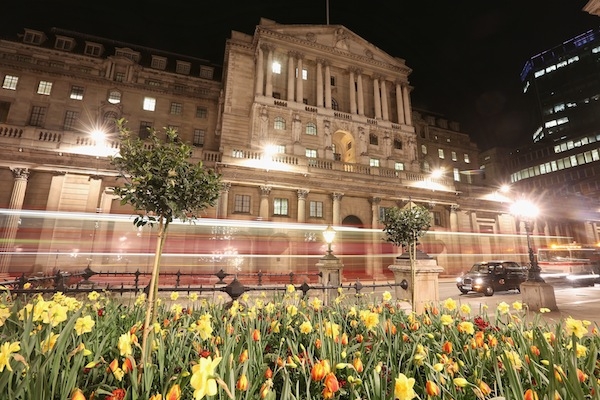Treasury questions is one of the more entertaining spectacles on offer in the Commons. There’s the standard banter between George Osborne and Ed Balls – today we saw the Chancellor dub his opposite number ‘the member for Unite west’, with Ed Balls noting in his reply that at least he’d only been heckled by a few trade unionists rather than the entire Olympic stadium. There were new ministers to welcome too: Greg Clark received such a warm cheer that he joked he felt ‘like Boris Johnson’.
But the centrepiece of the session was – along with the confirmation that the Autumn Statement will take place on the rather wintery date of 5 December – George Osborne’s announcement about the appointment of the next Bank of England governor. He said:
‘I can tell the House today that the appointment of [Sir Mervyn King’s] successor will be conducted through a fair and open competition. For the first time in history the post will be advertised and the advertisement will appear in the press later this week.’
The advert, which will appear in the Economist on Friday, will detail a candidate who will see ‘major reforms’ to the Bank. Hopefully they will have a gift for forecasting, too. An interview panel, chaired by Sir Nicholas Macpherson, permanent secretary to the Treasury, will draw up a shortlist of candidates. This afternoon, the Prime Minister’s official spokesman said the successful candidate would be ‘the Queen’s appointment on the recommendation of the Chancellor and the Prime Minister’.
So where does that leave Nick Clegg? The Downing Street spokesman did not name any formal role for the Deputy Prime Minister at all in this process, confirming that he will not sit on the interview panel, either. But a senior Lib Dem source says to me this afternoon:
‘This is probably the biggest single appointment the coalition government will make, so naturally the Liberal Democrats will be involved in the decision. The role of the Governor of the Bank of England is always important but given the state of the economy it’s particularly pivotal at the moment and will become even more so as the coalition’s reforms mean that the Governor has a central role in financial services regulation. It’s crucial that we get this decision right.’
Indeed, the coalition agreement says ‘on the issue of public appointments, the Prime Minister will consult with and have regard to the views of the Deputy Prime Minister’. So though Clegg won’t be making the formal recommendation to the Queen, he sees a formal role outlined within the founding documents of the coalition. What will be interesting is how much regard Osborne and David Cameron will pay to that role if the two of them disagree with Clegg over Sir Mervyn’s successor.







Comments